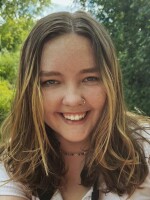PTSD, or post-traumatic stress disorder, often affects veterans. With limited treatment options and barriers to getting help PTSD often goes untreated. But two researchers at Marquette University are using exercise as an alternative, accessible option.
They’re using yoga as both a mental and physical stress reliever. A recent program with a group of veterans explored how mindful physical activity could change how the brain handles stress.
Rachel Bollaert is an assistant clinical professor of exercise science in the department of physical therapy, and Jacklynn Fitzgerald is an assistant professor of psychology. They explain that PTSD is the most common diagnosis for those suffering from trauma. Even though 90% of U.S. adults will face trauma in their lifetime, only about 7-9% will obtain a PTSD diagnosis.
“For individuals who do [receive a diagnosis,] we are talking about symptoms of dysregulated mood, problems with processing emotions, perhaps instances of aggression. We also have characteristic traumatic flashbacks or re-experiencing a traumatic event,” said Fitzgerald.
Veterans, specifically, are one of the largest populations suffering from PTSD, whether they served in overseas conflict or even remained in the U.S. They surveyed around 100 veterans in the community and found that they wanted something outside psychotherapy. However, only half of those surveyed received clinical services through Veterans Affairs.
“We know that, you know, a lot of training and preparation goes in for these individuals to prepare them for their work and to prepare them for conflict, but still considerably less done to serve these individuals back home after they return in terms of making sure that their mental health is the best it can be,” said Fitzgerald.
The two wanted to offer this community alternative therapy, like exercise, to combat their mental health issues. They believe that there is a relationship between dealing with trauma and movement that could potentially help those who have PTSD.
“Yoga really incorporated two different aspects of physical health and physical wellness and physical fitness, along with mental wellness and fitness,” said Bollaert. “The specific yoga program that we decided to use really incorporated what they call this mindful resilience aspect of it.”
Fitzgerald explains that veterans often also suffer from chronic pain issues, which helped their decision to lead therapeutic yoga. They want to make sure that their practices are mindful and gentle not to incite more pain in these individuals.
“They have developed this negative association, right, with someone telling them they need to do something that they don’t really enjoy, whether it’s the intensity or the type of movement,” Bollaert added. “And so being cognizant of that, as well of, you know, what we can offer them, that’s something that may elicit more positive emotions and positive responses, and also the opposite to potentially what they experienced.”
The two led a 12-week program that gained a positive response from veterans. They enjoyed being in the space of shared identity without being mandated to engage in conversations about their mentality. Bollaert and Fitzgerald hope to continue their research in this field to understand the psychological effects of the program further.
“If we understand the mechanics and the hope is eventually we can understand better why some people get much better therapeutic therapy from these types of interventions and why it might not work as effective on other individuals, so really trying to tap into that precision better is a future goal,” said Fitzgerald.
Have a story idea you'd like to hear on Lake Effect? Share below.
_






